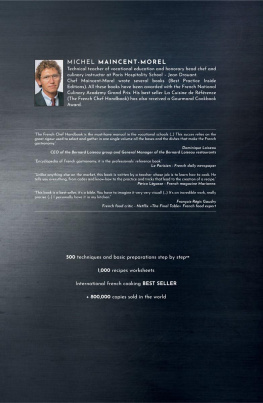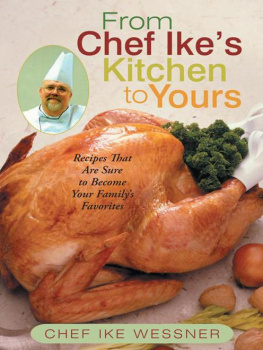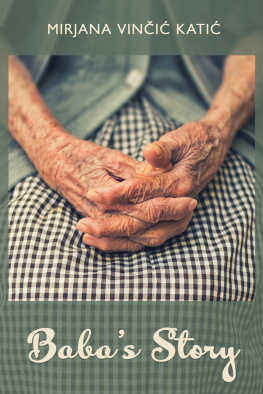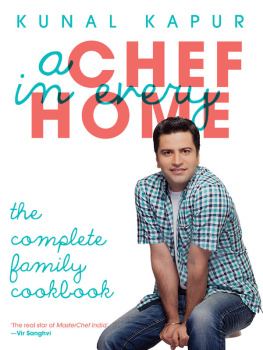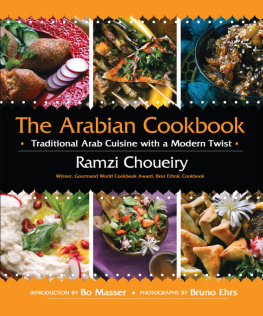Chef Baba Cookbook
Eastern European Cuisine
By Miroslava Perge and Damir Perge
A Madman Interactive, LLC Book
DALLAS
Copyright 2017 by Madman Interactive, LLC
Photography 2017 by Madman Interactive, LLC
All rights reserved. No part of this book may be reproduced or transmitted in any form by any means, electronic, mechanical, photocopying, recording, or otherwise, without the prior written permission of the publisher. For information on getting permission for reprints and excerpts, contact info@madmaninteractive.com.
The Chef Baba Cookbook books is available for special promotions and premiums. For details, contact: Director, Business Development, Madman Interactive, info@madmaninteractive.com
Library of Congress Cataloging-in-Publication Data
Perge, Miroslava and Perge, Damir
Chef Baba Cookbook / Miroslava Perge and Damir Perge; photography by Jana Arnold, Damir Perge, Mira Paige Perge, and Angela Perge1st. ed.
Includes Index.
ISBN 978-0-9996984-2-6
I. Cooking. I. Perge, Miroslava I. Perge, Damir II. Family III. Title.
Printed in the United States of America
First Edition
BOOK DESIGN BY MADMAN INTERACTIVE, LLC
Edited by Jana Arnold
A Madman Interactive, LLC book
Version 1.03-E
Madman Interactive Dallas, Texas USA
Publishers since 2012
Websites: chefbaba.com madmaninteractive.com
MSRP: USA $19.95
Acknowledgements
I want to thank my children, Jelena, Dejan and Damir and their families for giving me the encouragement to share my cooking joy with all of you. I also want to thank my large family in America and Serbia. Special thanks from the bottom of my heart to my producer and publisher Jana Arnold. Without her relentless effort, this would not be possible. And of course, I want to thank my son Damir for being a cooking imbecile and for allowing me to teach him how to cook. That tells you that it is never too late for anyone to learn something new.
To all of the Chef Baba fans, I want to thank you for your thousands of messages in supporting me in sharing my cooking secrets from the old country. Over the years, you have said many extremely kind words to me, so I will end it with this: I love you more.
Lots and lots of hugs and kisses, Chef Baba
I want to thank Chef Baba for taking the time to teach me how to cook. Never in my wildest dreams did I think I would learn how to cook. That is so, so not me, I thought. Becoming less of a cooking imbecile is an ongoing process. One thing I know from playing soccer is that you only get better through plenty of practice along with expert advice. I now have the confidence to learn how to cook, only because Im being coached by a world-class expert. I am happy to be part of the cultural knowledge transfer of Chef Babas seventy-five years of cooking experience, and share it with the rest of the world. I am proud to be called Chef Babas Sous Chef.
Chef Baba, I love you forever.
I also want to thank our producer and book publisher Jana Arnold for making the Chef Baba Cooking Show and Chef Baba Cookbook a reality. It would not have happened without you. Chef Baba and I are extremely grateful and thankful.
To all Chef Baba fans, I love you for inspiring and supporting my mother in her quest to share her cooking knowledge with you. It has been a humbling experience reading to Chef Baba your thousands and thousands of comments and emails, showing your love and support. If you recall from one of the episodes, she is anti-computer. However, she finally has an iPhone, at eighty-five years old. Now the question is who is going to teach her to use it so I dont have to type her social media updates for her.
Love, Damir Chef Babas Sous Chef
Table of Contents
Super clean kitchen means no one uses it.
Chef Baba, Season 1: Episode 1
Chef Babas History of Cooking
Seventy-five years of cooking and still cooking.
I was born on April 27th, 1932 in Sremska Mitrovica, Yugoslaviathe oldest of seven children. I grew up surrounded by history and tradition. Sremska Mitrovica was called Sirmium during the Roman times.
First mentioned in the 4th century BC and originally inhabited by Illyrians and Celts,
I tell you this short history of my birthplace and where I grew up because some of the recipes in my cookbook are thousands of years old. I learned from my first eighty-five years of life that cooking and culture are intertwined. One cannot live fully without both.
The cooking traditions have been passed down through the generations. I learned to cook from my mama and she learned from her mama and so on. Because we lived on a farm and my parents had to work on the land all day, I began cooking for my siblings at the age of ten.
My father, Pavle Radojevi, wanted a son but before he finally got one, my parents had Beba, Vida, Rada, Caca, Joja, and me. They finally hit pay dirt with Lili (Milo) as the seventh child. So helping my mama cook was a big task. Out of hundreds of recipes, the first one my mama, Zlata, taught me was Gibanica.
My mama was not only a wonderful cook, but she was also the butcher of the family. My dad would chase a pig around the farm until it was exhausted. He would hold it down and my mama would kill the pig. I was like my father and could not even kill a chicken. A lady across the road from us, Baba Roza, would kill the chickens for me to cook. My mama was a true chef. Even when she was exhausted from working all day on the farm, at 8 or 9 in the evening, we could ask her to make something to eat and she would always say yes.
My grandfather owned the farm my parents lived on, and my father was in the middle of building our house, and had finished only one room, when he went to war in 1940. The seven of us lived in one room for those two years.
In 1942, my father returned home from a German work camp. He finished building our home, and in 1943 our little brother Lili was born. At that time German soldiers occupied two rooms of our home. To celebrate Lilis birth, the nice German soldiers gave us a Christmas tree. It was not our custom in the Orthodox Church to have Christmas trees. That was an American custom. I believe that was a sign that we would be moving to America in the future. And my brother Lili would later be the first of the siblings to emigrate to America in 1967.
Even throughout WWII my family always had food. We used what we had and we were satisfied. Everything was naturalmore than organic. We had pigs, ducks, turkeys, milk cows, and a beautiful garden. We had fruit trees bearing Rainer cherries, sour cherries, pears, and plums. We grew corn, and beets (to make alcohol) and made our own cheese, and sour cream.
I later married and had childrena girl Helen and twin boys Dejan and Damir. Besides working on our farm, I held a job at a bank. My coworkers called me Farmer Girl because I supplied eggs, cheese, and meat. They would come to our house to buy a pig, which we would butcher for them to take home. It was quite a lifea large farm, large house, Hillman Chrysler, and most importantly a large family and many friends.
Because our farm was fifteen minutes from downtown Sremska Mitrovica, my sisters and their husbands often came to visit us. As each of their families added new children, the family gatherings grew bigger and bigger. As is the custom in our country, I would make a variety of appetizers, pastries and desserts for the occasionsdishes like Gibanica, Listii, Meat Crepes, Burek, Lepinjice, various strudels and apple pies. For big occasions like Christmas or New Years, I made a magnificent feast that included Sarma, Prebranac, roasted lamb and roasted pork.
Next page


